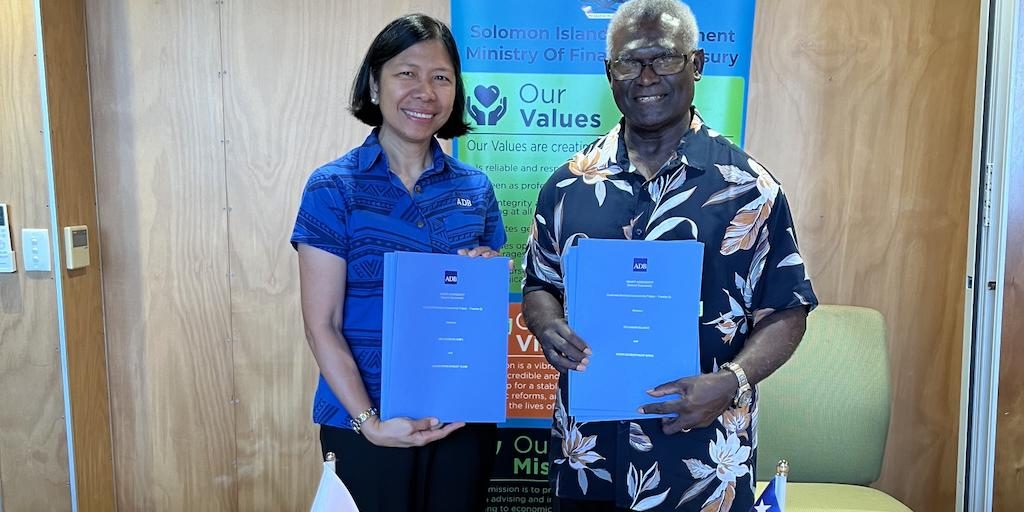The Asian Development Bank (ADB) and the Government of Solomon Islands have signed agreements for a $6.93 million loan and a grant of $12.48 million to support the improvement of solid waste management in Greater Honiara.
Minister of Finance Manasseh Sogavare and ADB Director General for the Pacific Leah Gutierrez signed the agreements at an event at the Ministry of Finance and Treasury.
The Integrated Solid Waste Management Project for Climate-and Disaster-Resilient Honiara will help strengthen solid waste management, contribute to reduced greenhouse gas emissions, and improve environmental quality and public health.
“The project will increase the livability, environmental sustainability, and climate and disaster resilience of the Solomon Islands’ main urban center,” said Ms. Gutierrez. “Ocean health in and around Guadalcanal Island will also be greatly improved.”
Honiara generates about 80 tons of solid waste per day but only 59% of this is collected. The remainder is improperly disposed through open burning and illegal dumping.
The project will promote solid waste management by developing climate-resilient and sustainable solid waste infrastructure by constructing a new controlled landfill and rehabilitating the existing dump site; ensuring the sustainability of solid waste management services by improving capacity for service delivery and governance; enhancing ocean health, reducing waste, and improving the circular economy through recycling, community livelihood improvement and awareness activities.
The $12.48 grant comes from the Asian Development Fund (ADF) that provides grants to ADB’s poorest and most vulnerable countries. It is replenished every 4 years by the ADF’s donor countries.
A concessional loan agreement and grant agreement totaling $53 million was also signed as part of the second tranche of financing for the ADB-supported Land and Maritime Connectivity Project. The second tranche was approved on 18 October 2024 and is strengthening transport infrastructure in Solomon Islands.
ADB is committed to achieving a prosperous, inclusive, resilient, and sustainable Asia and the Pacific, while sustaining its efforts to eradicate extreme poverty. Established in 1966, it is owned by 69 members—49 from the region.









